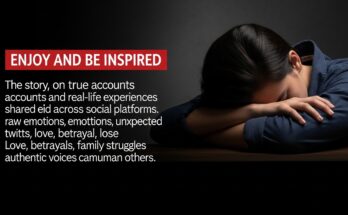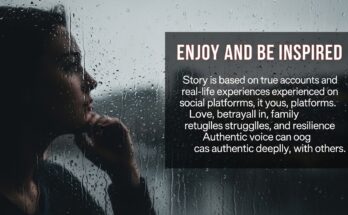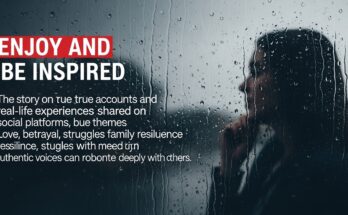My ex and I parted ways years ago, but somehow, I’m still expected to play chauffeur for his daughter from a previous relationship. When his current partner called, demanding I pick up the girl from school because they were “busy,” I was stunned. I’m not her parent, and I’m certainly not an emergency driver. I’ve helped before out of kindness, but this time felt different—entitled, transactional. I politely declined. That’s when the backlash began. Suddenly, I was “heartless,” “immature,” and “unreliable.” But I knew I wasn’t wrong. I was simply enforcing boundaries that should’ve existed long ago.
I used to say yes to everything—school pickups, weekend babysitting, even last-minute emergencies. I did it for the child, who’s innocent in all this. But the adults? They treated me like a fallback option, not a person. No one asked if I was available—they assumed. No one offered compensation or even gratitude. It was always, “She needs you,” as if I had no life of my own. I realized I was being used, not appreciated. So I stopped. And that decision, though painful, was liberating.
My ex was furious. He accused me of abandoning his daughter. I reminded him that she’s not mine, and he has a co-parent and a partner—both of whom should be stepping up. I wasn’t refusing out of spite. I was refusing because I’d become their unpaid, unacknowledged safety net. I told him I’d always care for the child, but I wouldn’t be manipulated anymore. He didn’t take it well. But I stood firm. Boundaries aren’t cruelty—they’re clarity.
The child’s mother eventually called me, surprisingly calm. She admitted they’d leaned on me too much and apologized. That meant something. I told her I’d help in true emergencies, but not as a default. She agreed. We set clearer expectations, and I felt a weight lift. It wasn’t about the child—it was about the adults finally taking responsibility. I wasn’t the villain. I was the one who finally said what needed to be said.
Now, I live with less guilt and more peace. I still see the girl occasionally, and we have a warm bond. But I’m no longer the emergency contact for a family I’m no longer part of. I’ve reclaimed my time, my dignity, and my voice. And I’ve learned that saying “no” doesn’t make you cruel—it makes you honest. Sometimes, the kindest thing you can do is step back and let others step up.
I share this story for anyone who’s stuck in the role of “default helper.” You’re allowed to say no. You’re allowed to protect your time. And if people call you selfish, let them. Because real selfishness is expecting someone else to carry your load without question. I carried mine. Now it’s their turn.


